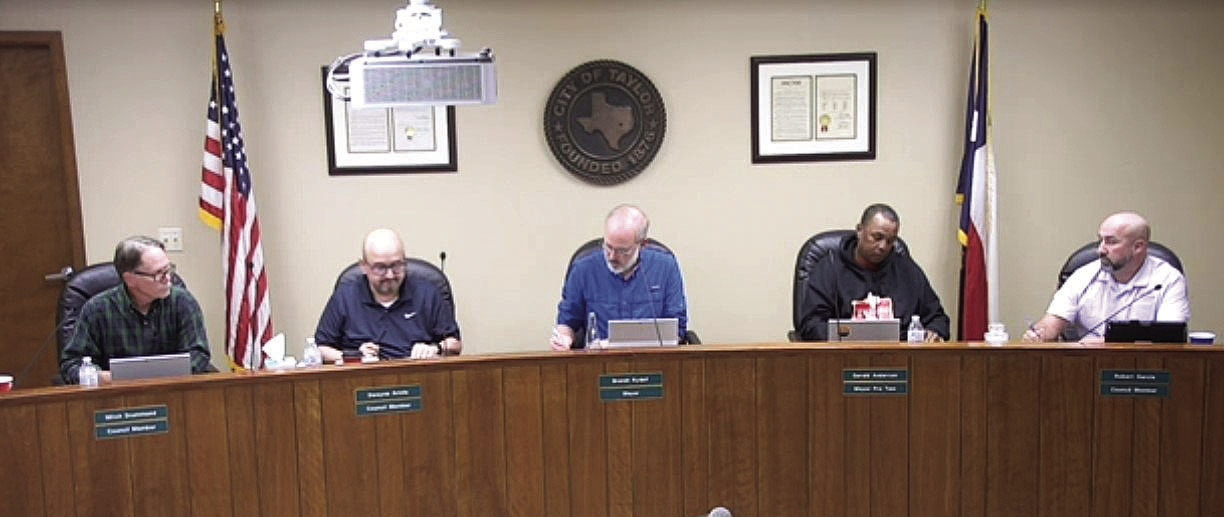EDIE ZUVANICH Special to the Press
Few Taylor City Council decisions have proved as controversial in recent years as their move to increase council pay by 4000%. Taylor residents were motivated to protest, appearing at council meetings and showing up to sign a petition against the raise. Now the issue will be decided in the May 2024 election.
“We needed time for Williamson County to validate (the charter petition) and have a chance to look it over. They were validated so what’s happening now is the attorney is drafting resolutions to call for the election on each of those items,” Jeff Jenkins, deputy city manager, updated Council at the Dec. 14 meeting.

Jenkins told Council he will bring the proposed ballot wording to the Jan. 11 council meeting.
So far, the ballot will have one referendum issue and four charter issues which were submitted by validated petitions.
The referendum will have the public deciding whether to raise council pay to $500 per meeting for council members and $750 for the mayor. If it passes, a new resolution would be approved with the amended pay amounts. If it fails, Council’s pay would revert to the previous resolution, with amounts of $25 per meeting for council members and the mayor.
The referendum would not change the city charter, however there are four items on the upcoming ballot which, if approved, will make longterm changes to how the city operates.
If passed, Proposition A would set Council compensation at $125 for each council member and the mayor per meeting. This would supersede any payment established by resolution or ordinance.
Proposition B would establish a minimum period of 72 hours between meetings from the time a nonemergency ordinance is introduced to the time it can be adopted.
Proposition C would designate that the council member elected to the At-Large position serve as the mayor. Currently, the mayor is chosen by the five elected council members from among their ranks.
Proposition D would require that all meetings of the City Council be held within Taylor.
“One last bullet point on this, we had some questions about what items does staff have. After review with the city attorney only one looks like it would be necessary for consideration to put on this May election,” Jenkins said.
He suggested a charter amendment be added that cuts down the number of polling places available in Taylor due to a limited amount of voting machines and difficulties finding people to work the election.
“We would recommend we come back to modify that to say something like one main voting location. If necessary we could do another one, but give the city some flexibility in that language,” Jenkins said.
Councilmen At-Large Dwayne Ariola requested adding an amendment to the charter to prohibit councilmen from taking employment at firms they have recruited to Taylor.
“I don’t believe we should get off council and the very next day go work for...and I’m not saying (Samsung Austin Semiconductor), it could be any firm that’s moving here...I think that wording should be in our charter as well because it will be another two years before we can stop that from happening,” Ariola said.
By state law, city charters may not be amended more often than every two years, so if any of the charter amendments pass they will be in effect for at least that long, and it will be that long before new charter amendments could be added.
Jenkins met with the city attorney and another attorney who specializes in charter law before updating the council. He said the charter attorney recommended not convening a charter committee until after the election, potentially in 2025 nearer to the date when the next charter election could be held if any of the amendments pass.
Jenkins gave the following timeline: Jan. 11, council meeting: review resolution/ordinance to call for election.
Jan. 25 and Feb. 8, council meetings: review any changes.
Feb. 16, last day to call for election, may require a special- called council meeting if not approved at previous meetings.




